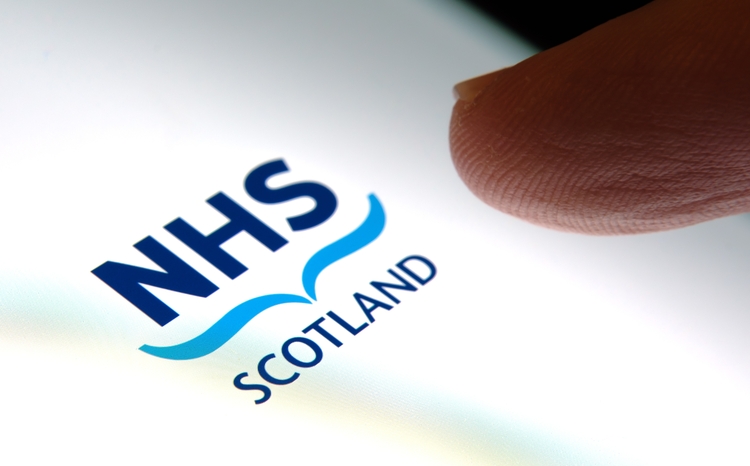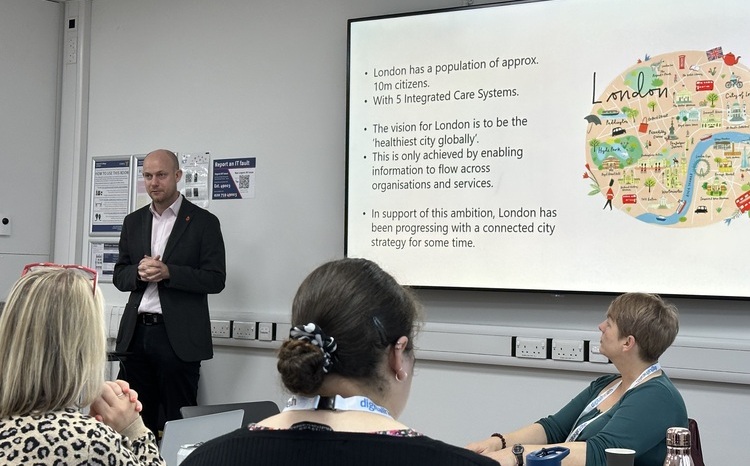Business as usual
- 19 July 2007
 UK staff at the newly-named Carestream Health – formerly known as Kodak Health Group – hope their customers won’t see much immediate change under the group’s new owners: even the phone numbers stay the same.
UK staff at the newly-named Carestream Health – formerly known as Kodak Health Group – hope their customers won’t see much immediate change under the group’s new owners: even the phone numbers stay the same.
Behind the scenes, though, UK and Ireland managing director, Charlie McCaffrey, thinks the new arrangements will work in Carestream Health’s favour.
“I believe we’ve got resources and financial might behind us,” he tells E-Health Insider. “Also we’re not bidding against other sectors [of Kodak] for R&D.”
He adds that Onex, Carestream Health’s new Canadian owner, knows the sector well and understands the business.
Officially, Kodak Health Group became Carestream Health in May this year, but the sale had been announced in January and Kodak first aired its intention to sell the group in May 2006.
Commentators at the time referred to Kodak’s realisation that the health group needed investment to compete with the other big names in medical imaging. The transformation from film to digital is, of course, the factor everyone in medical imaging – healthcare organisations and suppliers alike – is grappling with.
“We’ve gone through a massive transformation from conventional imaging to digital,” says McCaffrey, who has been with Kodak and now Carestream Health for 20 years, starting with the firm as a service engineer in Glasgow and moving up via sales and sales management.
Is the end of film in sight? McCaffrey smiles, having heard the question many times before. “We are seeing a rapid rise in digital,” he says.
In the UK, Carestream Health has major contracts with NHS Scotland, providing the country’s PACS/RIS solution; with independent hospital group, Bupa; and with the Englis NHS National Programme for IT where it is providing CR, laser imagers and DICOM conversion devices for GE Healthcare PACS installations in the South and the North West and West Midlands.
For McCaffrey, like most leading players in the sector, one of the big issues is data sharing – certainly it was a theme that dominated many PACS discussions at the recent UKRC.
Organising the flow of medical images between NHS trusts, between the NHS and independent facilities and across regional and national borders has turned out to be a complex business.
“It’s not so much a technical challenge but there are challenges around security, data integrity and the ownership of data,” McCaffrey explains.
Carestream Health is also seeing growth in demand for its DR (digital radiography) offerings – a high-performance image capture chain for converting x-rays into digital images. The attraction lies in the high quality images produced and, crucially, in improved productivity and workflow – a key factor for services operating under the pressure of demands to speed up diagnostic testing and, in some places, shortages of radiographers.
What next? Molecular imaging is a growing part of the portfolio, according to McCaffrey. This is a diagnostic technology which supports the move towards earlier detection of disease by helping clinicians to see molecular abnormalities that are the origin of the disease at a very early stage, opening up the possibility of earlier treatment.
It’s not just human beings that need x-rays either; high value items that have regular safety checks, such as aircraft engines, also benefit from the technology. They undergo a process known as non-destructive testing and Carestream Health has taken on Kodak’s former business in this area.
In the digital health world McCaffrey sees the integration of PACS/RIS with electronic patient record systems as the next big step for hospital systems. Preparation is vital, however, and McCaffrey says: “The first step is to have images properly and uniquely identified in a database structure that enables storage not only of DICOM but other datasets too. This is exactly the approach that NHS Scotland has taken with the PACS/RIS solution we are providing there.”
Related articles
E-Health Insider Special Report on PACS/RIS



